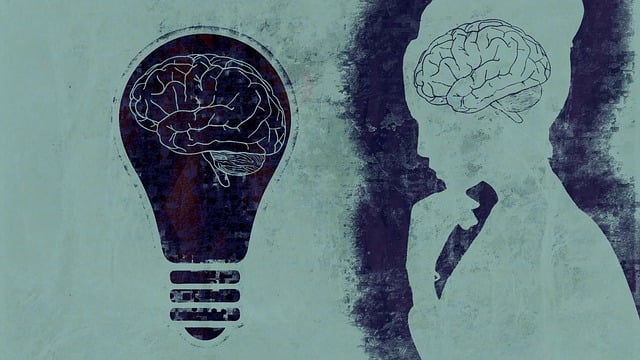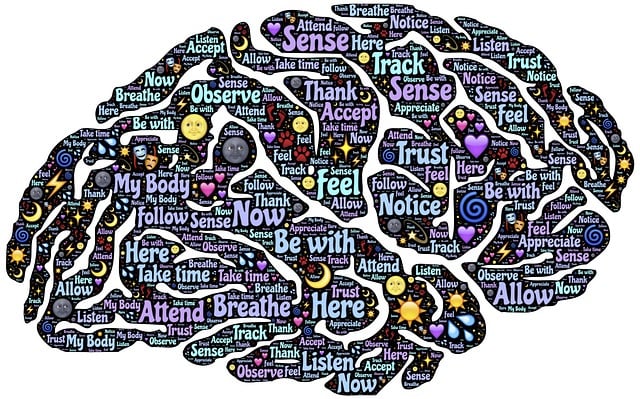Identifying target groups for outreach programs like Boulder Couples Counseling Therapy requires a nuanced approach, involving demographic, cultural, age group, and mental health trend analysis. This enables tailored interventions addressing specific needs—e.g., college students' coping skills or older adults' compassion cultivation—enhancing program impact and mental health awareness. Effective counseling programs tailor services to community demands through partnerships with local organizations, leveraging resources and trust for inclusive, effective outreach. Careful planning, staff training in cultural sensitivity, accessible communication, and engaging programs with practical mental health strategies are crucial. Measuring program impact using robust evaluation methods tracks KPIs like participation, satisfaction, and behavioral changes, ensuring sustainability and relevance within diverse community contexts.
Community outreach programs play a vital role in extending mental health services beyond traditional settings. In Boulder, where diverse communities thrive, tailored counseling initiatives can significantly impact well-being. This article explores the strategic implementation of such programs, focusing on identifying specific community needs and designing responsive therapy models. We’ll delve into building collaborative partnerships with local leaders and organizations to ensure effective outreach. Additionally, we’ll discuss logistics, training, and measurement techniques for successful continuity.
- Understanding Community Needs: Identifying Target Groups for Outreach
- Designing Effective Counseling Programs: Tailoring Services to Community Demands
- Building Partnerships: Collaborating with Local Organizations and Leaders
- Implementing the Outreach Strategy: Logistics, Training, and Communication
- Measuring Impact: Evaluating Success and Continuity of Community Programs
Understanding Community Needs: Identifying Target Groups for Outreach

Understanding community needs is a pivotal step in implementing successful outreach programs, particularly for specialized services like Boulder Couples Counseling Therapy. Identifying target groups requires a nuanced approach to ensure the right support reaches the right people. By assessing local demographics and mental health statistics, organizations can pinpoint communities with heightened needs, such as young adults struggling with stress or families facing relationship challenges.
This process involves considering diverse factors: socioeconomic status, cultural backgrounds, age groups, and existing mental health trends. For instance, Boulder’s vibrant college community might require programs focused on coping skills development for students navigating academic pressures. Alternatively, older adults could benefit from compassion cultivation practices tailored to their unique circumstances. Therefore, a comprehensive understanding of the local landscape enables more effective targeting and ultimately enhances the impact of outreach initiatives, fostering better mental health awareness.
Designing Effective Counseling Programs: Tailoring Services to Community Demands

Effective counseling programs require a tailored approach to meet the unique needs of the community they serve. In the context of Boulder Couples Counseling Therapy, understanding the demographic and psychological landscape is key. By assessing local trends and challenges, such as specific mental health issues prevalent in the area or cultural factors influencing relationships, counselors can design interventions that resonate with the community. This involves more than just offering a one-size-fits-all service; it means recognizing and addressing diverse needs, from individual mood management to stigma reduction efforts around mental illness.
Community outreach goes beyond providing therapy; it’s about fostering public awareness campaigns that normalize conversations around mental health. Incorporating creative strategies like workshops, peer support groups, and educational seminars allows counselors to engage a broader audience. By tailoring services to the community’s demands, Boulder Couples Counseling Therapy can ensure its programs are not only effective but also relevant, ultimately contributing to a healthier and more supportive local environment.
Building Partnerships: Collaborating with Local Organizations and Leaders

Building strong partnerships is a cornerstone of successful community outreach programs, especially for initiatives focused on mental health and well-being, like Boulder Couples Counseling Therapy. By collaborating with local organizations and leaders, such programs can create a network of support that reaches deeper into the community fabric. This partnership approach leverages existing resources, knowledge, and trust within the community to enhance the impact of outreach efforts.
Local organizations and leaders bring valuable insights into the specific needs and challenges faced by their communities, enabling tailored interventions. For instance, these partnerships can facilitate access to underserved populations, improve cultural sensitivity in therapy practices, and enhance the dissemination of evidence-based communication strategies and stress reduction methods. Such collaborations ensure that Boulder Couples Counseling Therapy’s efforts align with community priorities, fostering a more inclusive and effective outreach program.
Implementing the Outreach Strategy: Logistics, Training, and Communication

Implementing a successful community outreach strategy for Boulder Couples Counseling Therapy involves careful planning and execution. The first step is to establish clear logistics, including identifying target communities, choosing suitable locations for sessions, and setting dates that align with local needs. Once the foundation is set, focus shifts to training. Staff members should be equipped with both clinical skills and cultural sensitivity to effectively engage diverse populations. This includes learning about different backgrounds, customs, and communication styles to foster inclusive interactions.
Effective communication is a cornerstone of any outreach program. Creating accessible materials that resonate with various demographics is essential. Incorporate the Mind Over Matter Principles in educational resources to empower individuals with practical mental health strategies. Design engaging programs that offer valuable insights into managing stress, improving relationships, and cultivating resilience. Through well-structured Social Skills Training sessions, participants can learn effective communication techniques, enhancing their overall well-being and connecting them to available support networks, such as Boulder Couples Counseling Therapy.
Measuring Impact: Evaluating Success and Continuity of Community Programs

Measuring the impact of community outreach programs, such as Boulder Couples Counseling Therapy initiatives, is crucial for evaluating their success and ensuring longevity. By implementing robust evaluation strategies, organizations can assess the tangible benefits and long-term effects on the communities they serve. This involves tracking key performance indicators (KPIs) related to program participation, client satisfaction, and behavioral changes. For instance, measuring the number of individuals or families reached through these programs and collecting feedback from participants can provide valuable insights into their perceived improvements in mental well-being, relationships, or overall quality of life.
Moreover, assessing cultural sensitivity in mental healthcare practice is an integral aspect of successful community outreach. Adopting Mind Over Matter principles and incorporating evidence-based Stress Reduction Methods can further enhance the impact. These approaches ensure that programs are tailored to meet the unique needs and cultural contexts of diverse communities, fostering higher levels of engagement and positive outcomes. Continuous evaluation allows for necessary adjustments, ensuring these initiatives remain relevant, effective, and sustainable in their community setting.
Community outreach programs, such as those offered by Boulder Couples Counseling Therapy, play a vital role in addressing diverse community needs. By understanding target groups, designing tailored services, building strategic partnerships, and effectively implementing and measuring the impact of these initiatives, organizations like Boulder Couples Counseling Therapy can significantly enhance community well-being. These programs not only connect individuals with necessary resources but also foster a sense of belonging and support within the community.














